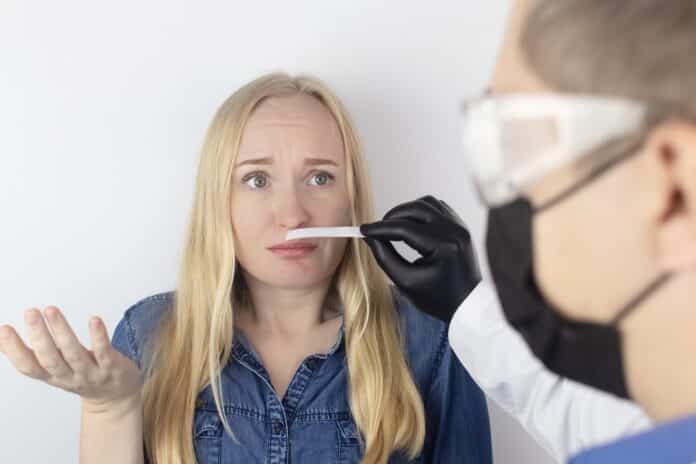
After recovering from a COVID-19 infection, many people report losing their sense of smell. Why does this happen, and what does this mean for those who have had the infection in the past?
Why Do People Lose Their Sense of Smell After Covid?
According to some studies, the absence of a sense of smell, also known as anosmia, is a more accurate indicator of whether or not a person is infected with the virus than other symptoms, such as a cough or a fever.
There is also evidence to suggest that around half of infected individuals experience a temporary loss of olfactory perception, with this number rising to as high as 67% when the infection is mild to moderate.
According to the findings of a recent study, this inability to smell can be attributed to a decrease in the number of olfactory nerve cells located at the top of the nose cavity.
Fortunately, studies have shown that persons whose olfactory sense has been disrupted due to a viral infection can recover from this loss by repeatedly being exposed to smells for brief periods. While most people do eventually get better, there is a small percentage that never do.
Can You Treat this Condition?
Yes, you can. There are a couple of things you can do to regain your sense of smell, and they are:
Olfactory Retraining
This simply means learning how to smell again. During this process, you’ll regularly expose your brain and nose to sharp odors (including citrus, cloves, and eucalyptus) while focusing on the sensations they evoke. In long-term COVID patients, this process has been demonstrated to improve the loss of olfactory perception.
Medications
Neuromodulating drugs modify the communication between neurons. Although the amount of studies on the olfactory disturbance is small, it has shown some promising results. Some of these drugs, like gabapentin and amitriptyline, are also prescribed for the treatment of chronic pain and migraines. Because of their side effects, doctors often prescribe them only to people with severe conditions.
Intranasal Steroids
Low-risk treatment options include intranasal steroid sprays (mometasone or fluticasone). In a small percentage of patients (10-25% according to studies), these treatments have been demonstrated to improve their sense of smell.
Saline Irrigations
There is some evidence that you can reduce nasal inflammation and shorten recovery time with high-volume sinus rinses or saline irrigations (Netipot, Neilmed, Navage).


















